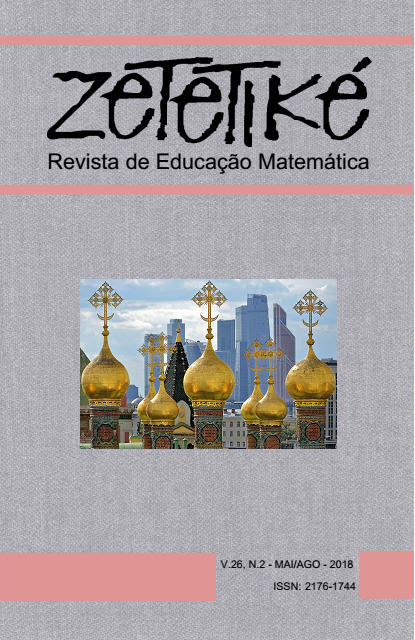Abstract
Are senses and meanings coincidents? Starting from the discussion around this question and some data of a
qualitative research, made with a group of ninth's grade student's of a public school of Minas Gerais, the
constructs senses and meaning, defined about the aim of Activity Theory are discussed in the research context.
The goal is to demonstrate, for the student's answers, obtained by semi structures interviews, a non-coincidence
between the social mean and the sense of these participations in mathematics tasks proposed by the researcher, during one semester. This coincidence, that we understand as a break in math class in a micro level, and in the school in general in a macro level, can generate an alienated activity. The results show that the social mean of
math and school, in general, doesn't match with the personal sense attributed by the students to them. In the end, some possibilities for teaching praxis as auxiliaries in the fabric of a transforming practice imbued with the
desire/duty to enable students to attribute new senses to the school are discussed.
References
Aguiar, W. M. J. (1998). Consciência e Atividade: categorias fundamentais da psicologia sócio-histórica. In A. M. B. Bock, M. G. M. Gonçalves & O. Furtado, Psicologia sócio-histórica: uma perspectiva crítica em psicologia (pp. 95-112). São Paulo: Cortez.
Alves-Mazzotti, A. J., & Gewandsznajder, F. (1998). O método nas ciências sociais. In A. J. Mazzotti, F. Gewandsznajder, O método nas ciências naturais e sociais: pesquisa quantitativa e qualitativa (pp. 147 - 178). São Paulo: Pioneira.
Asbahr, F. S. (2005). A pesquisa sobre a atividade pedagógica: contribuições da Teoria da Atividade. Revista Brasileira de Educação, (29), 108-118.
Borba, M. C., & Skovsmose, O. (2001). A ideologia da certeza em Educação Matemática. In O. Skovsmose, Educação Matemática Crítica: a questão da democracia (pp. 127 - 153). Campinas: Papirus.
Chaiklin, S. (2012). A conceptual perspective for investigating motive in cultural-historical theory. In M. Hedegaard, A. Edwards & M. Fleer. Motives in children´s development: cultural-historical approaches (pp. 209 - 224). New York: Cambridge University Press.
Duarte, N. (2004). Formação do indivíduo: consciência e alienação. O ser humano na Psicologia de A. N. Leontiev. Caderno Cedes, 24(62), 44-63.
Freitas, M. T. (2002). A abordagem sócio-histórica como orientadora da pesquisa qualitativa. Cadernos de pesquisa, (116), 21-39.
Kozulin, A. (2002). O conceito de atividade na Psicologia Soviética: Vygotsly, seus discípulos e seus críticos. In H. Daniels, Uma introdução a Vygotsky (pp. 111-137). São Paulo: Edições Loyola.
Lampreia, C. (1999). Linguagem e atividade no desenvolvimento cognitivo: algumas reflexões sobre as contribuições de Vygotsly e Leontiev. Psicologia: reflexão e crítica, 12(1), 225-240.
Leontiev, A. (1978a). O desenvolvimento do psiquismo. Lisboa: Horizonte universitário.
Leont´ev, A. N. (1978b). Activity, consciousness and personality. New Jersey: Prentice-Hall.
Mendonça, S. G. (2011). A crise de sentidos e significados na escola: a contribuição do olhar sociológico. Caderno Cedes, 31(85), 341-357.
Moraes, R. (2003). Uma tempestade de luz: a compreensão possibilitada pela análise textual discursiva. Ciência & Educação, 9(2), 191-211.
Ponte, J. P. (2009). Investigações matemáticas na sala de aula. Belo Horizonte: Autêntica.
Rey, F. G. (2007). As categorias de sentido, sentido pessoal e sentido subjetivo: sua evolução e diferenciação na teoria histórico-cultural. Psicologia na Educação,(24), 155-179.
Skosmose, O. (2000). Cenários para investigação. Bolema, 13(14), 66-91.
Vigotski, L. S. (2000). A construção do pensamento e da linguagem. São Paulo: Martins Fontes.

This work is licensed under a Creative Commons Attribution-NonCommercial-NoDerivatives 4.0 International License.
Copyright (c) 2018 Zetetike


